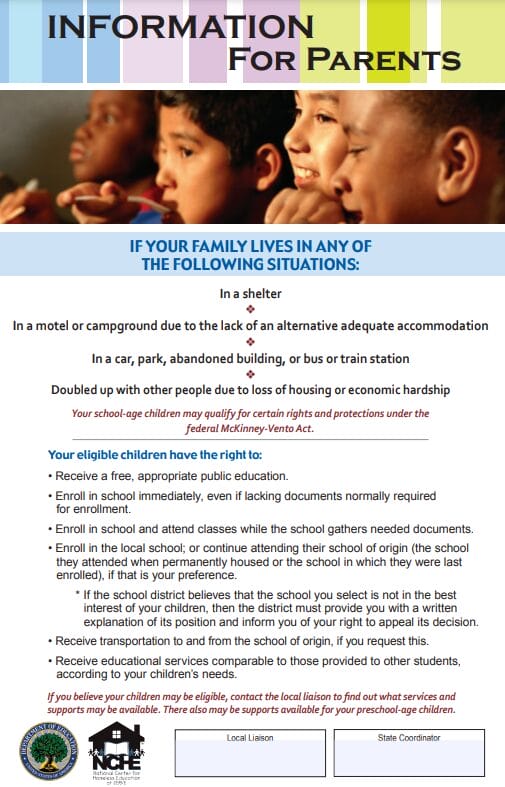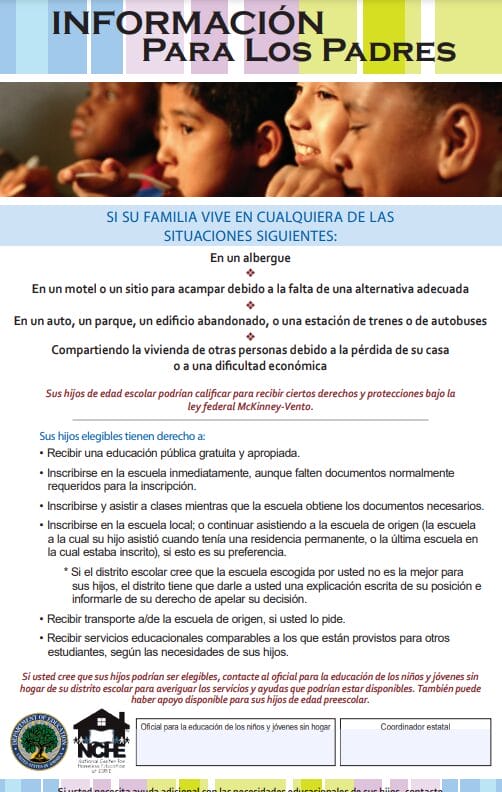Special Services
We’re Here for You
Colorado Preparatory Academy (CPA) offers robust special education services to support students and meet their needs, empowering them to thrive in school and beyond. With high-quality, personalized learning and the help of teachers and support staff, students with special needs can achieve their academic goals, find their confidence, and pave a path to success.
CPA is required to inform patrons of special education services and programs available including the McKinney-Vento Homeless Assistance Act of 1986.
The State of Colorado defines special needs as having concerns with: developmental delays, vision, hearing, health, communication skills, academic performance, social-emotional status, general intelligence, motor abilities, autism, traumatic brain injury, transition services and other disabilities. People with children from birth to age 21, who have any of these conditions are encouraged to contact the CPA’s director of special services, Christa Seger at 208.450.3184 for more information. Families enrolled in CPA are encouraged to contact Christa Seger at cseger@k12.com.
The McKinney-Vento Act defines homeless children as “individuals who lack a fixed, regular, and adequate nighttime residence.” The McKinney-Vento Act requires schools to register homeless children even if they lack normally required documents, such as immunization records or proof of residence. CPA families experiencing homelessness are encouraged to contact our CPA’s McKinney Vento liaison at 307.840.9398 or kashby@k12.com.
For more information homeless and unaccompanied youth, you can visit the Colorado Department of Education’s website.
https://www.cde.state.co.us/studentsupport/homeless_index
Our school offers a host of services to help your student get the support they need to thrive in school and beyond. Below is a list of specific services, providers, and contact information.
Identification of English Language Learners (ELL) Coordinator
Christa Seger
Director of Special Programs
cseger@k12.com
8601 Turnpike Dr. Suite 100, Westminster, CO 80031
208.450.3184
Section 504 Coordinator
Christa Seger
Director of Special Programs
cseger@k12.com
8601 Turnpike Dr. Suite 100, Westminster, CO 80031
208.450.3184
Homeless Liaison
Kim Ashby
McKinney Vento Coordinator
kashby@k12.com
8601 Turnpike Dr. Suite 100, Westminster, CO 80031
Notice of determination and appeal
If liaison determines that the student does not qualify for the MKV program, the parent/guardian/unaccompanied youth will be notified in writing with an explanation and information regarding the right to appeal the school’s decision.
If student’s custodial parent/guardian (or the student not in custody of a parent/guardian) does not agree with the determination, the student shall be immediately enrolled in the school until the dispute is resolved. The parent/guardian (or student, if applicable) may appeal an MKV determination to the CPA’s homeless liaison after receiving the written determination. The liaison shall issue a written decision on the dispute within 10 days of the receipt of the appeal to the parent/guardian (or student, if applicable). If the dispute is not resolved, the liaison will contact the District McKinney-Vento Coordinator (https://www.cde.state.co.us/studentsupport/mvliaisons) The District Coordinator will attempt to resolve the dispute, however, if this in unsuccessful, a team at the State will review the complaint and produce a decision within 15 business days which will be mailed to all parties. The decision of the team is final.
Resource Site
Our CPA and PPOS K12 Family Resources page is a place where students, parents, learning coaches, and staff can discover mindfulness activities, free and reduced price clothing, childcare, food assistance, fun free games, COVID-19 support, and much, much more!
https://sites.google.com/view/k12coloradofamilyresources/


Foster Care Coordinator
Kathy Wortley
Family Resource Coordinator/Social Worker
kwortley@k12.com
8601 Turnpike Dr. Suite 100, Westminster, CO 80031
719.306.9086
American with Disabilities (ADA) Compliance Act Coordinator/Special Programs Manager
Christa Seger
Director of Special Programs
cseger@k12.com
8601 Turnpike Dr. Suite 100, Westminster, CO 80031
208.450.3184
Non-Discrimination Coordinator
Christa Seger
Director of Special Programs
cseger@k12.com
8601 Turnpike Dr. Suite 100, Westminster, CO 80031
208.450.3184
Request for Parent/Guardian Interpreter Services or Disability Accommodations
Professional interpreter services may be requested at any time for parents/guardians of students with disabilities by contacting Christa Seger cseger@k12.com
Additionally, if any parent/guardian has a disability or other limitation that would impact their ability to participate fully in their child’s educational planning process, CPA would be happy to discuss accommodations that may be available in order to maximize the parent/guardian’s participation. Individuals seeking to discuss accommodations for this reason may contact Christa Seger cseger@k12.com
Procedural Safeguards
In accordance with the Individuals with Disabilities Education Act (IDEA) requirement that all educational agencies provide parents of students with disabilities notice containing a full explanation of the procedural safeguards available under the IDEA and U.S. Department of Education regulations. https://www.cde.state.co.us/spedlaw/2011proceduralsafeguards
Annual Public Notice of Special Services & Programs
In accordance with federal and state regulations, CPA will provide an annual public notice to families informing them of CPA’s Child Find responsibilities, procedures involved in the identification of educational disabilities and determination of students’ service and support needs.
Families are encouraged to review the following information that describes these regulations. Information regarding CPA’s internal practices to comply with these will be available in the CPA’s Special Programs Manuals and Handbooks.
Child Find
CPA strives to identify, locate, and evaluate all enrolled children who may have disabilities. Disability, as stated in IDEA, includes such conditions as hearing, visual, speech, or language impairment, specific learning disability, emotional disturbance, cognitive disability, other health or physical impairment, autism, and traumatic brain injury. The process of identifying, locating, and evaluating these children is referred to as Child Find.
As a public school, we will respond vigorously to federal and state mandates requiring the provision of a Free Appropriate Public Education regardless of a child’s disability or the severity of the disability. In order to comply with the Child Find requirements, CPA will implement procedures to help ensure that all CPA students with disabilities, regardless of the severity of their disability, who are in need of special education and related services—are identified, located, and evaluated —including students with disabilities who are homeless or students who are wards of the state.
Parent/guardian permission and involvement is a vital piece in the process. Once a student has been identified as having a “suspected disability” or identified as having a disability, CPA will ask the student or the student’s parent/guardian for information about the child such as:
- How has the suspected disability or identified disability hindered the student’s learning?
- What has been done, educationally, to intervene and correct the student’s emerging learning deficits?
- What educational or medical information relative to the suspected disability or identified disability is available to be shared with the school?
This information may be also be obtained from the student’s present or former teachers, therapists, doctors, or from other agencies that have information about the student.
All information collected will be held in strict confidence and released to others only with parental permission or as allowed by law. In keeping with this confidence, CPA will keep a record of all persons who review confidential information. In accordance with state regulations, parents have the right to review their child’s records.
As part of the Child Find process, some services may include a complete evaluation, an individualized education program designed specifically for the child, and a referral to other agencies providing special services.
Consent
CPA cannot proceed with an evaluation, or with the initial provision of special education and related services, without the written consent of a student’s parents/legal guardians. For additional information related to consent, please refer to the Procedural Safeguards Notice which can be found at http://www.cde.state.co.us/cdesped/iep or by accessing the link via the Child Find section of the CPA website. Once written parental/guardian consent is obtained, CPA will proceed with the evaluation process. If the parent disagrees with the evaluation results, the parent can request an independent education evaluation at public expense.
Special Education (IEP) or Service Agreements (504 Plans)
Once the evaluation process is completed, a team of qualified school personnel, parents/guardians, and other relevant service providers hold an evaluation determination meeting to come to agreement on whether the student meets eligibility for one of the disability categories under IDEA (Click http://www.cde.state.co.us/cdesped/sd-main for information related to eligibility criteria associated with the disability categories defined under IDEA). If the student is eligible and requires specially designed instruction, an Individualized Education Plan (IEP) will be coordinated; during which the IEP team will review and finalize the proposed details of an appropriate educational program to meet the student’s documented needs.
For students confirmed to present with special education needs, once the IEP team agrees on the IEP and the student’s educational placement, a Prior Written Notice (PWN) will be sent to the parent/guardian for signature. This must be signed and returned to CPA. CPA can only proceed with implementing the student’s IEP (or 504 Plan) upon receipt of the signed PWN. Some students are found to present with one or more disability, but do not meet the eligibility criteria outlined under IDEA (special education); however their disability may still require CPA to develop a 504 Service Agreement (504 Plan) to outline the special provisions a student may require for adaptations and/or accommodations in school-based instruction, facilities, and/or activities.
Students may be eligible to receive certain accommodations or services if they have a mental or physical disability that substantially limits or prohibits participation in or access to an aspect of the school program and otherwise qualify under the applicable laws. CPA will ensure that qualified students with disabilities have equal opportunity to participate in the school program and activities to the maximum extent appropriate for each individual student. In compliance with applicable state and federal laws, CPA will provide students with disabilities the necessary educational services and supports they require to access and benefit from their educational program. This is to be done without discrimination or out of pocket cost to the student or family for the essential supplementary aids, services, or accommodations determined to provide equal opportunity to participate in and obtain the benefits of the school program and extracurricular activities to the maximum extent appropriate to the student’s abilities and to the extent required by the laws. Click http://www.cde.state.co.us/spedlaw/rules or http://www.cde.state.co.us/cdefisgrant/federalattachsection504ada5040 for more information related to Section 504 of the Rehabilitation Active of 1973.
Parents/guardians have the right to revoke consent for services after initial placement. Please note, a revocation of consent removes the student from ALL special services and supports outlined on the IEP or 504 Plan.
Privacy and Confidentiality (FERPA / DATA)
To maintain privacy of students’ special education records, both within its central office and across school systems and databases, CPA follows protocols consistent with the federal regulations associated with the Family Educational Rights and Privacy Act (FERPA). Click http://www.cde.state.co.us/cdereval/ferpa for additional information about the privacy and security guidelines for your child’s educational records.
Data Privacy – https://www.stridelearning.com/privacy-policy
Children’s Online Privacy Protection Act (COPPA)
https://www.ftc.gov/legal-library/browse/rules/childrens-online-privacy-protection-rule-coppa
Accommodations
Notice of these rights is available, upon request, on audiotape, in Braille, and in languages other than English. Should you need further assistance or information regarding any of these accommodations, please contact Christa Seger, Director of Special Services , cseger@k12.com or any member of your child’s CPA team for guidance.
Translation Needs
Click https://translate.google.com/ to translate text to a language other than English.
Special Education Grievances or Disputes
CPA recognizes that despite best intentions of all parties, disagreements or miscommunications may arise between the school-based team and CPA families or students. Should this situation occur, the CPA special education case manager will initiate an IEP team discussion where the specific details contributing to any educational concern are fully discussed and addressed as the entire team determines would be considered most appropriate for the student. Collaboration is a primary focus for this type of meeting, and the CPA Special Education Team seeks to establish and maintain the confidence of its families to always serve its students in order to maximize their educational success.
http://www.cde.state.co.us/spedlaw/rules
Dispute Resolution Options
- IEP Facilitation – IEP facilitation is a voluntary process that can be utilized when all parties to an IEP meeting agree that the presence of a neutral third party would help facilitate communication and the successful drafting of the student’s IEP. This process is not necessary for most IEP meetings. Rather, it is most often utilized when there is a sense from any of the participants that the issues at the IEP meeting are creating an impasse or acrimonious climate.
- Mediation – A voluntary process in which both parties seek to resolve the issues involved in the concern with an unbiased, third party mediator from the Colorado Department of Education. The mediator will write up the details of the agreement that the parties come to through the mediation conference, the agreement is signed by both parties, and thus what the document states is mandated to be implemented; this process is overall less time-consuming, less stressful, and less expensive to complete than a due process hearing (see below).
Formal Due Process
Families are NOT obligated to pursue the above alternatives to due process should they feel their concerns can only be resolved through a formal due process hearing if a formal complaint against CPA is submitted to the Colorado Department of Education at http://www.cde.state.co.us/spedlaw/statecomplaint.
